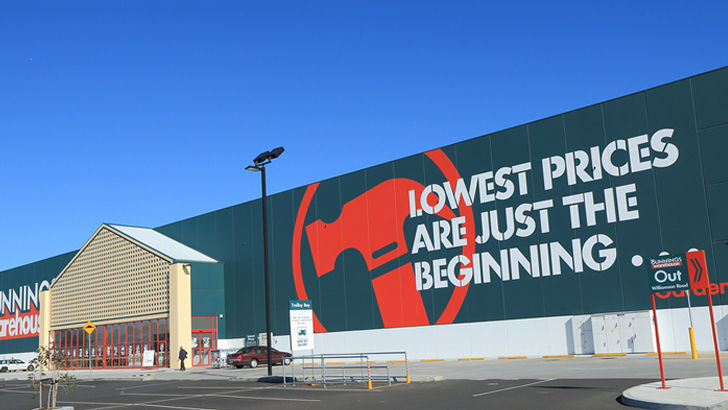What to expect from the Wesfarmers and Coles split
By Chris Batchelor
Key statistics: ASX: WES
Closing share price: $43.40
52-week high: $45.60
52-week low: -
Most recent dividend: 103c
Annual dividend yield: 5.12%
Franking: 100%
Wesfarmers announced last week that in order to find growth it first has to shrink. Coles, which represents about 40% of Wesfarmers is going to be spun out into a new listed company.
Coles is likely to have a market capitalisation of about $20 billion, resulting in the market capitalisation of Wesfarmers declining from $50 billion to $30 billion.
Both companies will still be in the top 30 largest companies on the ASX.
Wesfarmers is a conglomerate business. It operates a portfolio of businesses seeking to maximise its return on capital employed.
The portfolio is dominated by retail businesses, but also includes industrial companies including chemicals, energy and fertilisers. It previously had a significant insurance business but divested that a few years ago. Acquiring and divesting businesses is its modus operandi as it seeks to maximise the long-term returns from its portfolio.
Post Coles, the portfolio will be dominated by Bunnings, with department stores Kmart and Target, plus Officeworks and the industrials business also significant.

Coles accounted for 61% of the capital employed but only 34% of earnings with a return on capital of 9%. This compares with Bunnings that earns 47%, department stores 26% and Officeworks 16%.
The decision to spin off Coles is based on the growth profile. Coles is now considered to be a mature business. Opportunities to drive earnings growth in the future will be limited.
Over the nine years that Wesfarmers has owned Coles it has managed to drive earnings grow of 9.5%pa (based on earnings before interest and tax), but this has tapered off in the past two years and earnings are expected to decline this year, for the first time since the Wesfarmers acquisition.
Coles as an independent entity is likely to be a low growth but cash flow rich business.
The supermarket sector remains very competitive, with not only Woolworths and IGA to contend with, but also a number of overseas businesses pushing hard in the sector such as Aldi, Costco and Kaufland.
However, with a very strong franchise and large network of stores, Coles should remain a profitable business provided it is well managed.
The composition of Wesfarmers is likely to change and therefore it is difficult to draw solid conclusions at this early stage.
There is likely to be a shift towards businesses that can earn a higher return on capital employed. Wesfarmers is a business that has managed to deliver long-term shareholder value. CEOs typically have a long tenure.
CEO Rob Scott commenting on the Coles demerger said: "This is about setting up the Wesfarmers group for the next decade."
Finding those long-term opportunities can be difficult, but Scott looks intent on making the decisions necessary to deliver growth.
Get stories like this in our newsletters.
